ICI International Curriculum Forum║Professor Bae Sang-Hoon: What Really Matters to Unshrinkable Private Tutoring in Korea?
2021-12-03
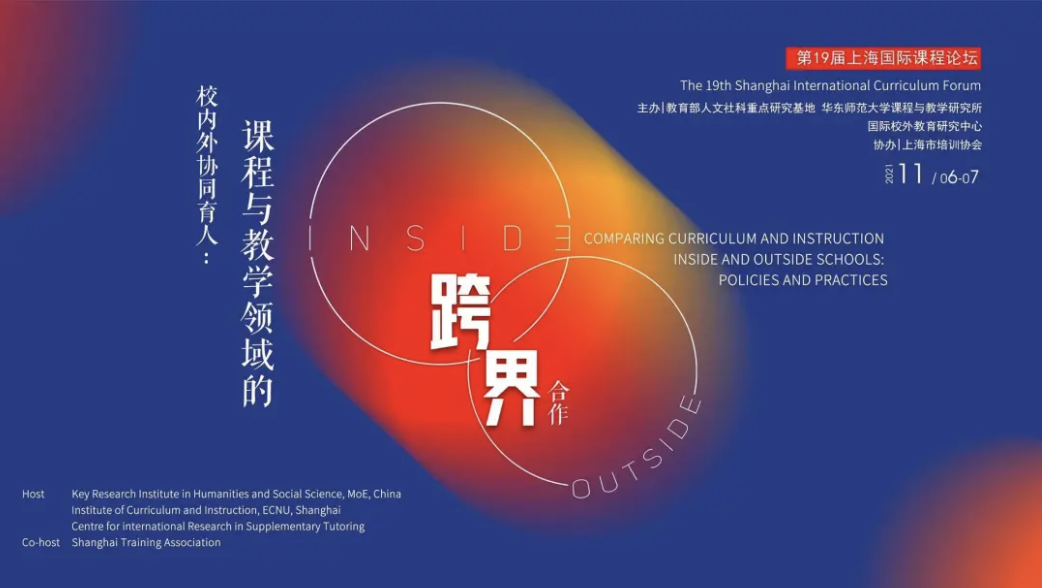

In order to promote the development of collaborative education inside and outside schools, and the standardized and orderly development of out-of-school training industry, The Centre for International Research in Supplementary Tutoring (CIRIST) of ICI, and Shanghai Training Association held a forum entitled “Comparing Curriculum and Instruction Inside and Outside Schools: Policies and Practices” from Nov. 6 to 7, 2021.

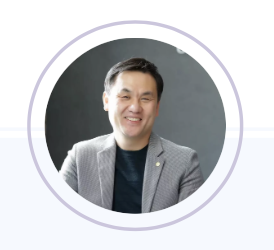
Professor Bae Sang-Hoon
Vice-president of Sungkyunkwan University
Editor-in-chief of International Journal for Research on Extended Education

Main Content of the Report

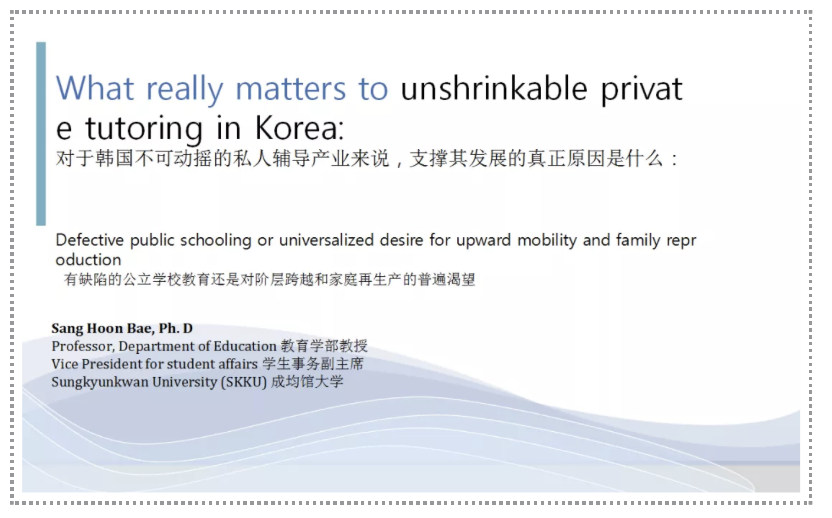

Hello everyone, I’m Bae Sang-Hoon from Sungkyunkwan University, thank you for inviting me to make a speech here. The title of my speech is “What really matters to unshrinkable private tutoring in Korea?”
First of all, I will explain the great development of Korea’s economy and the role of education. Next, I will show the shadow behind the rapid economic development-social inequality and division. In addition, I would also like to talk about the new role of education, in particular the new role of private tutoring in the newly formed social class system. Later, I will explain why the government has failed to reduce private tutoring. Finally, based on our experience, I would like to share some lessons.

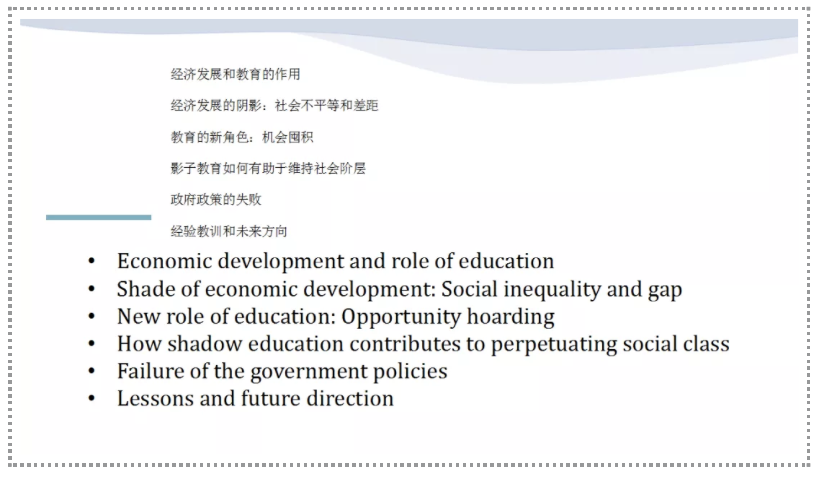

In order to explain the social phenomenon of private tutoring in Korea, we must first look at the economic and social development of Korea and the social and educational problems behind it. The slide you see now shows the economic development of Korea after the Korean War. At the end of the Korean War in 1953, Korea’s per capita income was only 67 US dollars. Today, half a century later, Korea’s per capita income has reached 33790 US dollars, an increase of 500 times.

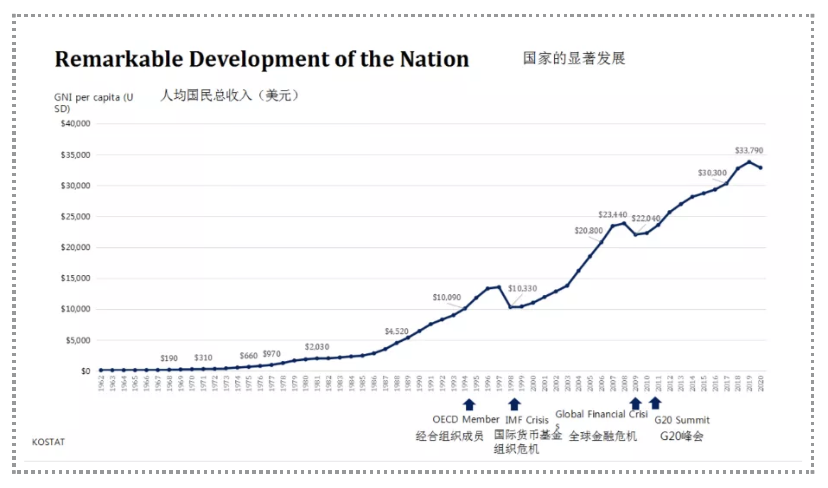

What do you think is the driving force behind the economic growth? The secret lies in the state’s investment in education. Koreans believe that in order to develop the economy and industry, we should cultivate industrial strength, which needs the support of capable talents. But the country didn’t have enough money, therefore, the Korean government must gradually invest effectively in education according to the different stages of the development of Korean industry.

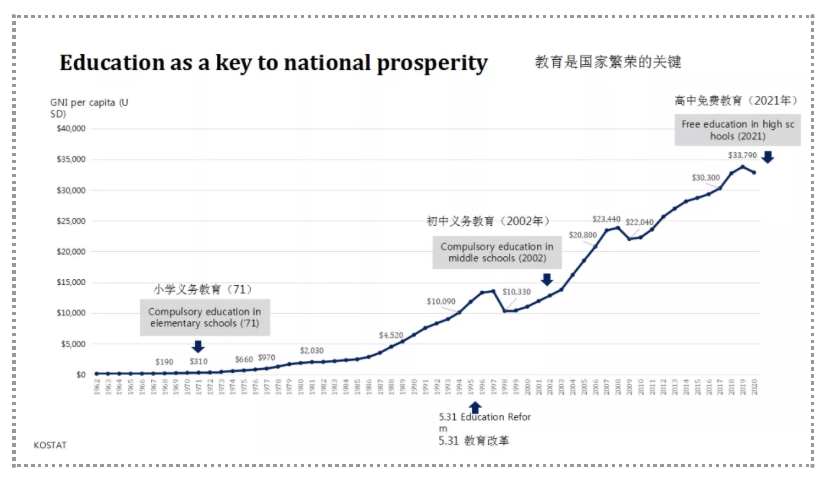

However, there is a shadow behind Korea’s amazing growth and development: social inequality and polarization are becoming more and more serious.

There is an index of “Dragon coming from a stream” in Korea, it indicates the possibility that if a child’s father who has the lowest level of education will not be able to enter the top 10% of the income group.



We are interested in what factors play a role in the process that parents’ socioeconomic status leads their children to attend prestigious universities and eventually succeed in their careers. Another question is what does it mean to enter SKY, the most prestigious university in Korean?

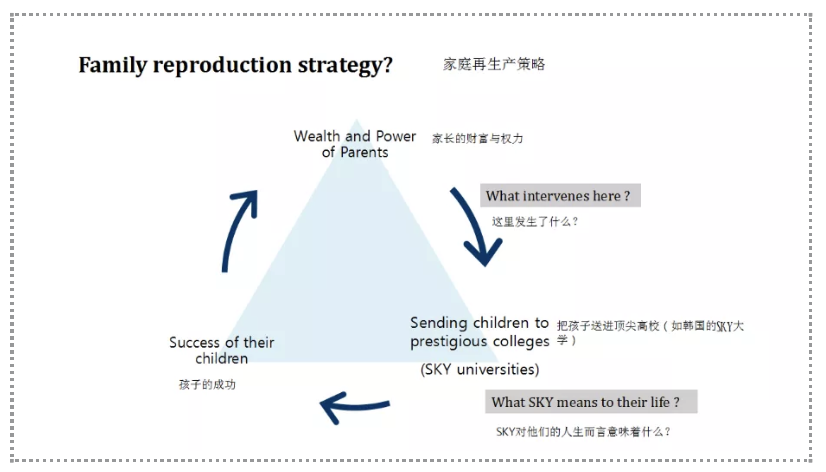

We investigated the family income level of college students. For students in SKY universities, 72.2 percent of students come from the top 20 percent of household incomes.



By narrowing the scope, we investigated students in Seoul National University. It is said that 88.5% of the registered students have experienced private tutoring. 48% of the students said private tutoring helped them to get into Seoul National University.

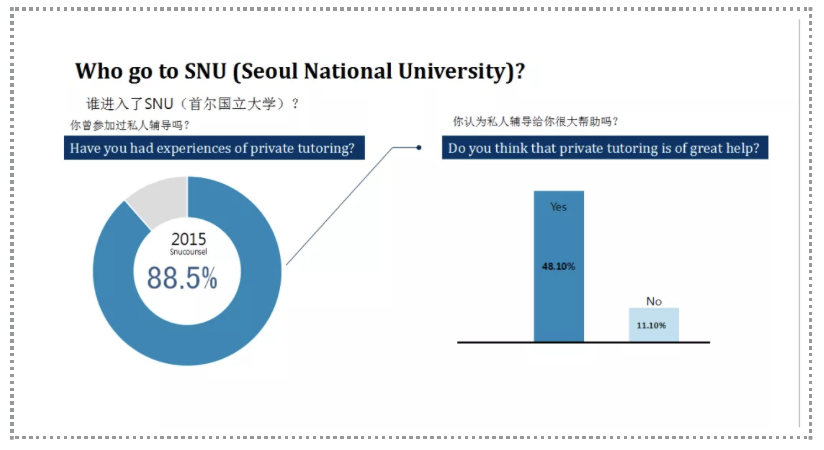

Next, I will talk about private tutoring in Korea and its influencing factors. I will use the data to explore three hypotheses:
1. The improvement of the quality of public schools will lead to the reduction of private tutoring.
2. Social inequality will affect private counseling.
3. The policy may affect private tutoring.

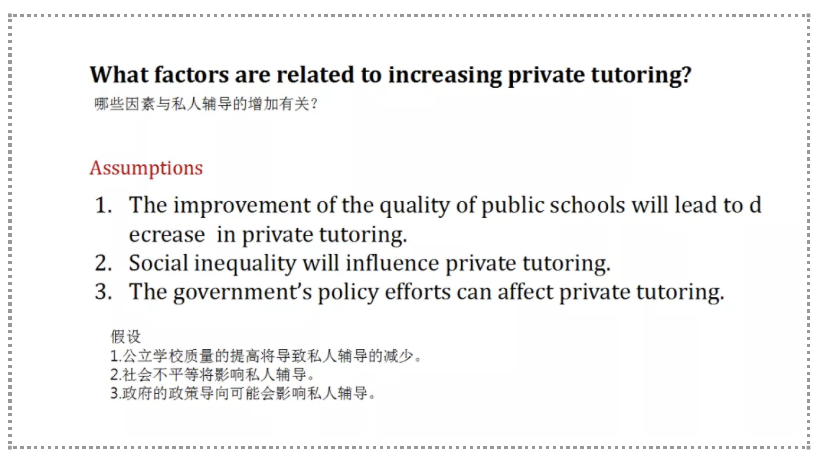

Does the increase in public investment in education reduce private tutoring?
This chart shows that this is not the case. The cost of education per student has increased year by year, but the cost of private tutoring per student has also increased. The teacher-student ratio is increasing year by year, but the number of private tutoring classes across the country is increasing. The improvement in the quality of education in public schools may have nothing to do with private tutoring.



Let’s take a look at this table, which shows what policies the government has implemented to curb the surge in private tutoring.

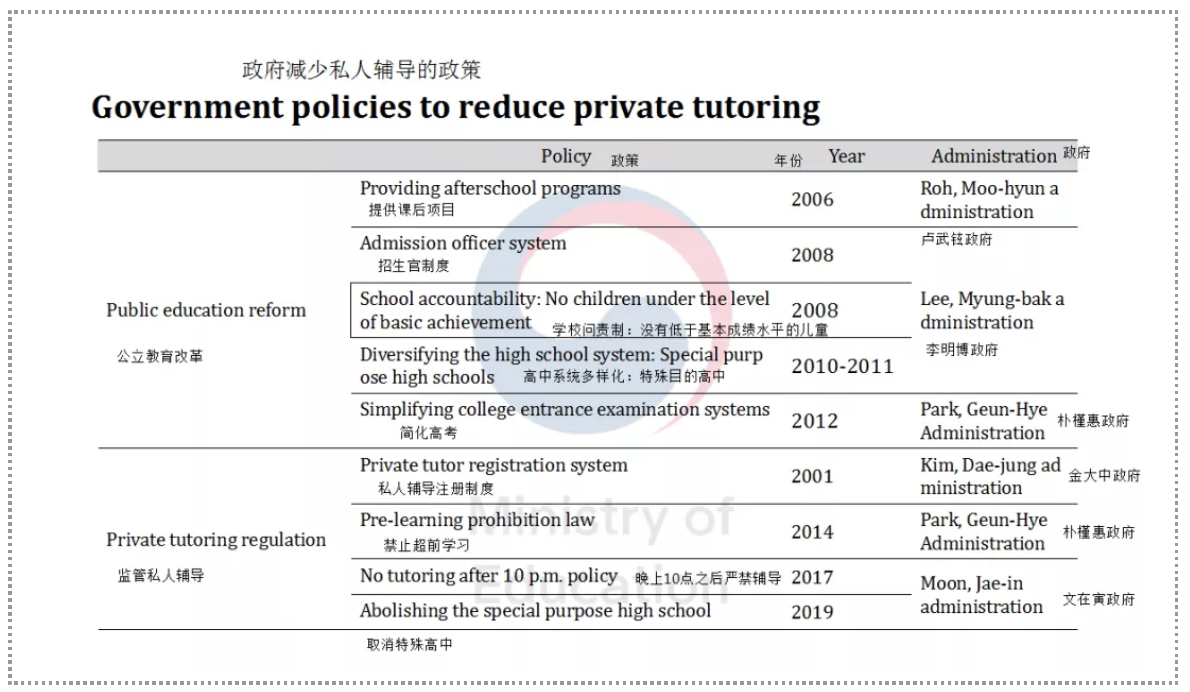

I divide policies into two categories. One is to reform public schools, and the other is to directly regulate or influence the private tutoring industry.
First of all, we can see the policy of reducing private tutoring by strengthening public education. Besides, Korea has also implemented many policies to improve the accountability of schools.


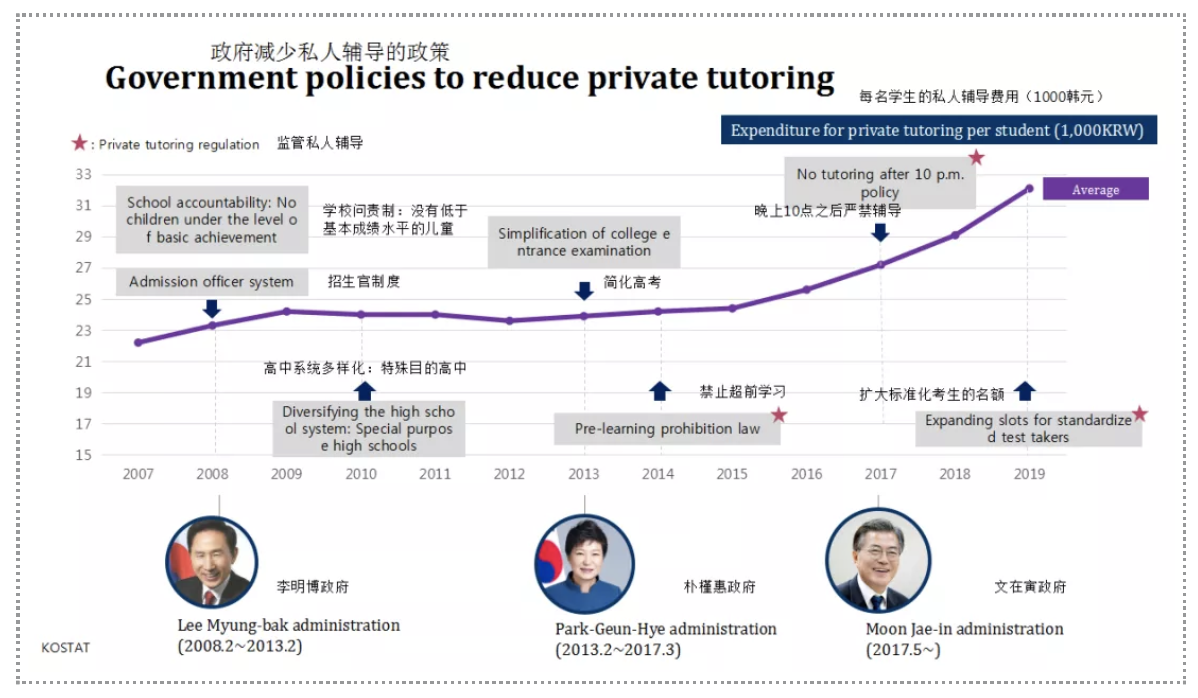

Unfortunately, this slide shows that the cost of private tutoring for each student is increasing every year, and although the government has implemented various policies to reduce private tutoring, it has not had much impact.

From the experiences of Korea, we can learn that:
1. The improvement in the quality of education in public schools may succeed in increasing the satisfaction of students, teachers and parents, but it has limited effect in reducing the private tutoring that is prevalent throughout the country.
2. The rising social inequality may weaken the effectiveness of the government’s policy on shadow education.

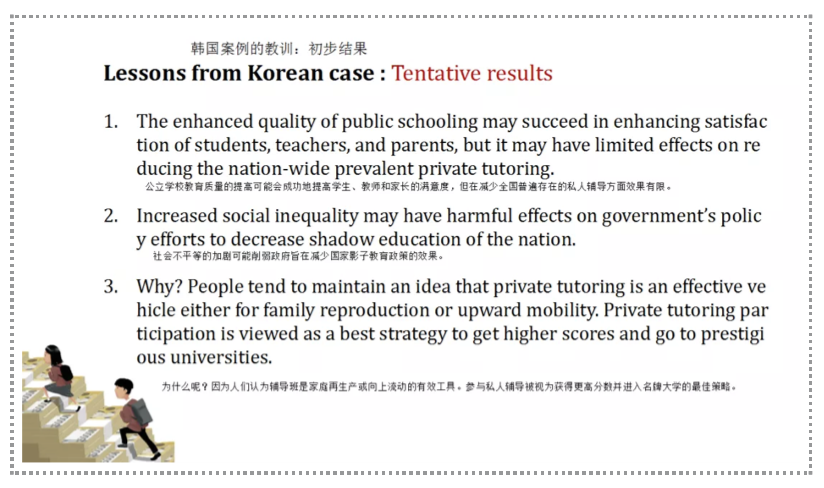

3. Korea is becoming a “test-oriented” society, where test scores determine where students go, including which university to go to and what kind of career to pursue, and the craze for private tutoring may not end easily.
4. As long as some people believe that private tutoring can improve scores and pave the way for admission to prestigious universities, the reform of public education will not solve the problem of private tutoring.

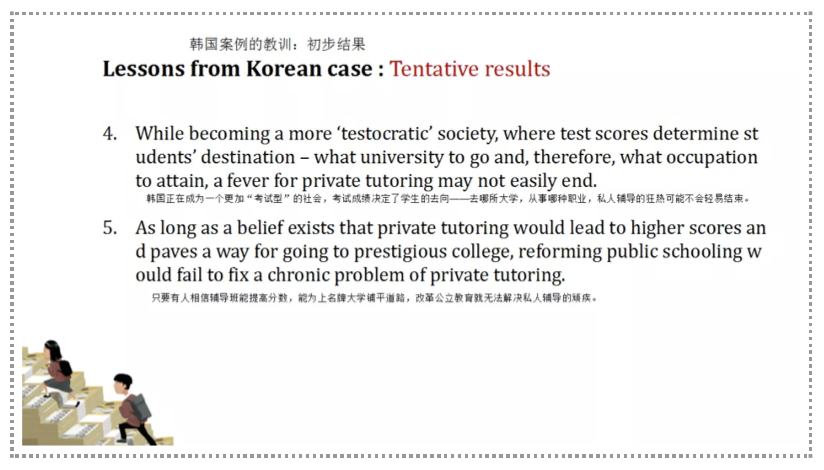

5. If efforts are not made to change social and educational inequalities, the regulation of private tutoring may not be able to defeat the long-standing shadow education, which will only continue to prevail underground.
6. Blaming public schools without solving social problems and failing to reverse the winner-take-all culture created by a distorted meritocracy will only demoralize educators and create cynicism.
In short, the experience of Korea over the past few decades tells us that in order to reduce private tutoring, the quality of public schools should be improved, and efforts should be made to reduce social inequality.



Nowadays, Korea is facing the challenge of rebuilding the social function of education and striving to create a healthy and dynamic social ecosystem.

